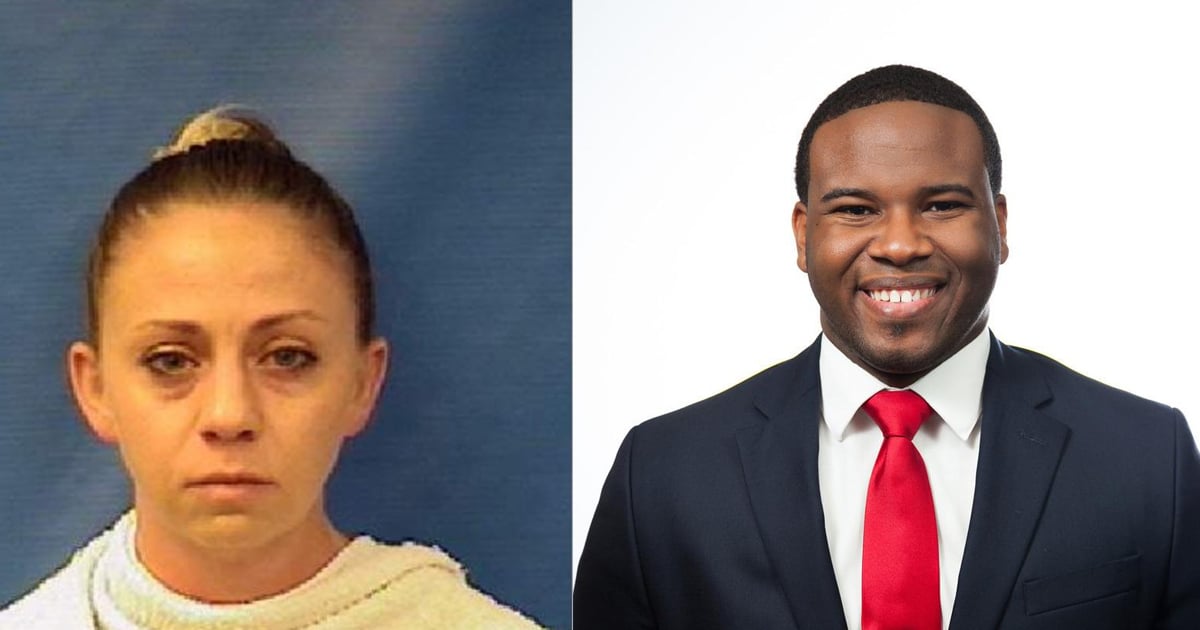On Tuesday night, when activists tried to speak at the first gathering of Dallas’ newly revamped Community Police Oversight Board, police broke up the crowd, grabbing and shoving people who demanded to be heard. According to the Dallas Morning News, the altercation was serious enough for the Dallas Police Department to file a use-of-force report about the incident.
Dallas City Council voted to expand community oversight of DPD in April, seven months after a white Dallas officer shot and killed an unarmed black man who was sitting inside his own apartment. Amber Guyger’s murder of Botham Jean reignited the decades-long push to reform the city’s toothless system of police oversight. Her trial last month—as well as the altercation at Tuesday’s meeting—further underscored the many reasons for Dallas’ trust issues with law enforcement.

At trial, prosecutors revealed that Guyger and her partner, Dallas police officer Martin Rivera, deleted text messages to each other shortly after the shooting. At sentencing, the prosecution pointed to racist texts and Pinterest posts in which Guyger joked about killing people. The trial also revealed that Dallas police union president Mike Mata met with Guyger shortly after police arrived at Jean’s apartment after the shooting. Guyger had already been whisked away from the scene and placed in a car. Mata told another officer to turn off the dashcam that would have recorded their conversation.
After Guyger’s trial, protesters gathered outside the Dallas Police Association building with signs saying “Mata Gotta Go.” Others have called for officials to seriously address cops who post racist and violent messages on social media. Activists have called for Rivera to be investigated for an incident 12 years ago in which he shot and killed a man accused of stealing a candy bar.
“The trial was a unique opportunity to shed light on what advocates for police reform have been saying all along about policing in Dallas,” said Changa Higgins, an activist who helped lead the campaign to expand community oversight of DPD. “It was validation … that this whole process of policing needs to be re-evaluated and reviewed and reformed.”
Higgins says the city’s response to a spike in crime this year only deepened distrust between police and minority communities. Governor Greg Abbott sent Texas Department of Public Safety (DPS) troopers to Dallas after 40 homicides occurred there in May, the city’s highest monthly body count since the 1990s. While local activists asked for more detectives to work the murders, DPS’ strategy in South Dallas reminded residents of New York’s controversial stop-and-frisk tactics. Within the first seven weeks of what the agency would eventually call “Operation D-Town,” troopers conducted about 12,500 traffic stops, mostly in South Dallas, the vast majority of which ended in warnings.
Higgins says he was stopped by police so frequently that he started to even more aggressively avoid police in his South Dallas neighborhood. One night this summer, when he saw he was being followed by a DPS trooper for the third time in as many weeks, Higgins says he turned a corner and sped toward a nearby friend’s house. He parked and ran inside as fast as he could. “It felt like living in a military occupation,” he told the Observer.
The troopers had been deployed to assist a short-staffed department—attrition due to pension problems and higher pay in the suburbs has trimmed DPD in recent years from about 3,500 to 3,000 officers. However, it’s not clear the solution is more cops. A staffing study released in August concluded that DPD needs to better manage the officers it already has before hiring any more. Activists hope the staffing study prods the city look for public safety solutions beyond just more boots on the ground.
“Public safety encompasses a bunch of other things, like public health, community trust, community policing, social conditions, socioeconomic inequities,” Higgins told the Observer. “We need to think beyond just crime stats and handcuffs.”
The debate over how many cops are really needed on Dallas’ streets comes at a strained time between police and the communities they patrol. While the city’s institutions urge the public to trust DPD to investigate the killing of Joshua Brown, who had just testified against Guyger, it should be obvious at this point why many do not.
While that tension contributed to the breakdown of the community police oversight board’s meeting on Tuesday, Higgins and other activists who helped create the new oversight structure have additional concerns with the new board itself. For instance, one city council member appointed a member who doesn’t think the oversight board should exist at all. Higgins also chafed at Dallas Police Chief Renee Hall steering the first meeting of a body designed to keep the police in check.
When Tuesday’s meeting ended without a public comment period, despite activists calling for one, Higgins stood up and demanded that people who attended be given a chance to address the new board. He says shutting the public down rather than letting them speak is just another example of police escalation. “Everything that’s wrong with Dallas right now when it comes to policing and distrust, it played out in that meeting the other night,” he said.
Read more from the Observer:
-
Some Small Texas Towns Are Declaring Themselves ‘Sanctuary Cities for the Unborn’: Frustrated with the Legislature, Texas city officials are taking on abortion rights through local policy measures.
-
Who Is John Cornyn Serving?: The senior senator from Texas has mastered the art of political subservience, making him very powerful—and perhaps vulnerable.
-
Mac Thornberry’s Retirement Leaves the Defense Industry With One Less Close Friend: The Panhandle congressman has been an unwavering hawk and a champion for bigger war budgets.







